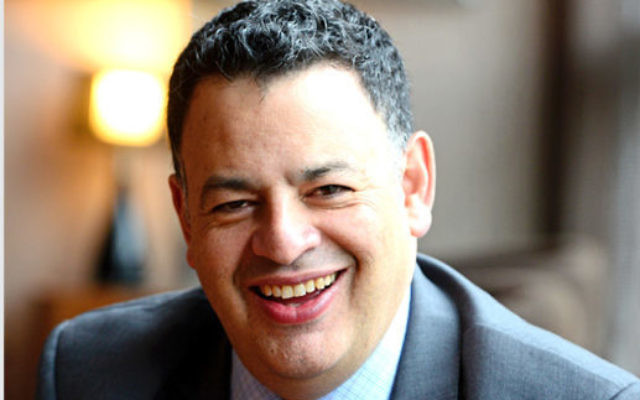Community Grapples With Civil Rights, Intersectionality
By Patrice Worthy
Conversations on Jewish participation in the “second civil rights movement” have come to the fore since the Movement for Black Lives platform labeled Israel an apartheid state. That one paragraph in the lengthy MBL document sparked a debate on how Jews could and whether they should contribute to the Black Lives Matter movement.
David Bernstein, the president and CEO of the Jewish Council for Public Affairs, spoke about Black Lives Matter, the new civil rights movement and intersectionality during a visit to Atlanta on Tuesday, Nov. 1.
Intersectionality is the idea of overlapping identities causing multiple threats of discrimination, and the focus of the discussion the Jewish Community Relations Council of Atlanta held at the Selig Center was the claim of a connection between Palestinians and Black Lives Matter.
“We were starting to see causes connecting that had not yet connected. We were seeing groups the Jewish community had known or not known well starting to join a much more ideological, hardened discussion around Israel,” Bernstein said.
Bernstein featured tweets posted during the protests in Ferguson, Mo., from Palestinians advising BLM demonstrators on how to combat tear gas. Each tweet ended with “#Fergusonsolidarity #fromfergusontopalestine” and was retweeted more than 672,000 times.
The support from Palestinians fostered a relationship between BLM and Palestinians for Justice, built on the theme of shared oppression.
But Bernstein said other forms of intersectionality are overlooked.
“Jews were very involved in the civil rights movement because we understood a society that can be racist against African-Americans can also be racist against Jews,” Bernstein said. “And we have a stake in transforming the society, and that’s intersectionality as well.”
He said the Jewish community has an opportunity to engage in the civil rights movement in a new way. He also said Jews’ failure to engage in and influence the new civil rights movement makes it easy for BLM to point a finger at Israel.
“To have a friend, you have to be a friend,” Bernstein said. “How do we influence anyone’s views if we’re not a part of the conversation? Not because we’re trying to shape the movement, but because it’s the right thing to do. We spend too much time putting out fires around the boycott, divestment and sanctions movement and not enough time on the preventive medicine of connecting with other communities.”
Some event attendees said Jews have always been proponents of intersectionality, but Palestinians have hijacked BLM to include an issue irrelevant to blacks and their fight for justice.
Others said that labeling Israel as apartheid is particularly upsetting because Jews have a history of helping blacks gain equality.
Emotion levels must be turned down and education levels turned up so blacks can be better equipped to deal with attacks, JoVantreis Tolliver said. She said many young blacks don’t know about the Jewish involvement in the civil rights movement and the Jewish tradition of fighting for justice.
“A lot of us are just now realizing the history of the civil rights movement and how closely involved Jewish people were in the liberation of black people,” Tolliver said. “On the other end of the spectrum, African-Americans have been afflicted with so much trauma that sometimes we’re not even able to heal ourselves enough to speak out about it. So how are you going to save someone else’s life when your life is on the line? We need to start empowerment through education.”
JCRC President Harvey Rickles said education is why the council decided to bring Bernstein to Atlanta, the cradle of the civil rights movement. Rickles said the talk created an intersection of world issues and local issues in the Jewish community.
“The theme of re-engaging is good. It’s true Jews have always been there, but we need to still be there. Tikkun olam, or repairing the world, is a key theme of the JCRC,” Rickles said. “You can’t always cherry-pick. … You have to look at the central issue. If you ever want to come to a common ground, it is certainly better to be talking to people than not be talking to them.”





comments